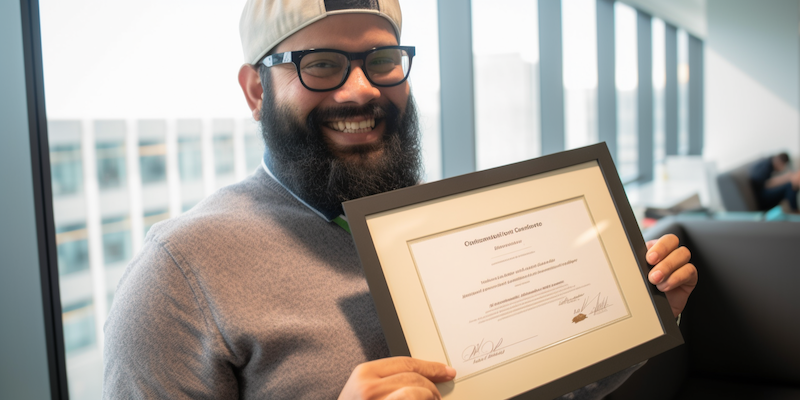If you’re thinking to become a coach then you will want to choose the right coaching course.
This article aims to give you the confidence in what to look for to find the right one for you.
Firstly, let’s be really clear. Coaching courses are not all alike. They are not commodities, like a litre of petrol or a bag of sugar.
Each course is different from every other course. And whilst some elements might be similar (core coaching principles, the number of days, certain support structures, etc.) the way they are delivered, the underlying philosophy, the style of coaching, the nature of the learning facilitation, even the vibe of the people, will be different.
Some courses (and we certainly believe Animas is one of them) can be considered “objectively better” in terms of what it takes to train a good coach. But even then it’s going to depend on what you need and can afford.
For instance the very best course in the world might be so out of your affordability that it’s not even a choice for you. Similarly, if you only need some basic coaching skills to supplement how you manage your team members, becoming a transformative coach is likely to be more than you need.
In other words, finding the right course is about finding the course that best meets all of your needs.
That said, there are some essentials that we believe should be part of a course if you want to be an effective, ethical and successful coach.
After these basics, it’s about preference – what draws you personally to a specific course.
Let’s now look at all the areas you should look at identifying, and also, which are essential and which are preference-based.
7 Essential Things to Look for When You Choose a Coaching Course
In this first part we’ll look at the 7 areas that need to be present to ensure a course is of a high enough quality to develop a good coach.
- Accreditation
- Quality content
- Real life coaching practice
- Supervision
- Mentoring
- Meaningful assessment
- Realistic duration to gain skills
Accreditation
Whilst accreditation is not the sexiest topic, it is absolutely and categorically the first thing you want to be sure is in place when looking at a coaching course.
It doesn’t matter how good the content looks, how much it costs or how big a name the trainer is, if you want to be recognised as a professional coach, you will need to choose an accredited course.
This is not because accreditation means a course is good and non-accreditation means it’s bad. It’s simply that the lack of accreditation means it won’t give you the certification you need to be part of the recognised profession.
Increasingly, coaching is being seen as a profession and membership of the profession matters, especially if you want to work within organisations. But to develop credibility as a professional coach in any area will require you to be accredited as a coach.
Coaching is not regulated, any more than counselling or psychotherapy are, but just like these sister professions, there is an increasingly robust and meaningful professional recognition that matters more and more.
So, yes, you can take an unaccredited course and you can practise as a coach perfectly legally. Indeed, you can do that with no training at all. But it won’t give you access to the profession.
Accreditation to look out for comes, as explored in the first part of this book, from:
- International Coaching Federation
- Association for Coaching
- European Mentoring and Coaching Council
- An awarding body such as the Institute of Leadership and Management or the Chartered Management Institute
- An academic qualification in coaching
We strongly believe that the future of coaching accreditation and credentialing lies with the ICF, the world’s largest coaching body. As such, we recommend ensuring that any course you choose is accredited by them.
Quality Content
Once you have ensured the box of accreditation is ticked you can begin to look in more detail at the course itself.
When coach training first began, the only thing most coaches learned was the ubiquitous GROW model for coaching.
This is a useful model and we still teach it as a foundational piece. However, the coaching world has matured immeasurably from this time and this is no longer sufficient if you want to thrive as a professional.
The content of a “good” course is not one that can be set out once and for all – there is no ideal content that you can look for.
However, there are some principles that will make it more or less aligned to the current state of coaching.
A good coaching course will provide education and training around:
- The core principles and practices of coaching
- A professional body’s competency frameworks
- Contracting in coaching
- The coaching relationship and journey
- Ethics in coaching
- Aspects of coaching psychology
- The professional journey of a coach beyond training
The precise details of these may vary from school to school with one focusing (as we do) on a transformative lens and another on performance orientation. That’s where the preference question comes in, which we’ll get to later.
Real Life Coaching Practice
Coaching is not theory. It is practice.
Any course that is going to help you develop real and lasting coaching skills will insist on you doing practical coaching as part of the course.
This may vary in terms of the amount but we believe that 40 hours is about right. That might seem like an arbitrary figure but it’s based on an assumption of 8 clients with 5 sessions each. That is a good amount of experience to gain in your training phase and will ensure you encounter enough challenging moments that stretch you whilst providing multiple opportunities to strengthen skills, see results and build meaningful relationships with clients.
When looking for your coaching course, be sure that real-life practice is not simply recommended but is essential for you to pass the course. These initial hours of experience will be the bedrock of your confidence going forward after completing your course.
Supervision
There are two essential forms of support for your coaching work: supervision and mentoring. These differ and your course should offer both.
Let’s take a look at supervision first.
Supervision is a reflective conversation about anything that relates to your experience and practice of coaching.
This could mean a conversation about:
- How you’re feeling about a particular client
- The outcomes of a coaching engagement
- Your sense of direction as a coach
- The use of a particular coaching lens
- An ethical dilemma that has cropped up
- And a limitless range of other areas
In other words, coaching supervision is about the whole range of experience you’re having around coaching.
Supervision during training is typically provided in small reflective groups though it might also be provided individually.
We believe that supervision is essential for coach training since it ensures that all aspects of your work and its impact on you and your clients can be explored.
Mentoring
Mentoring, by contrast to supervision, is limited in its focus.
Mentor coaching, as it is more formally called, is focused on how a coach is meeting and demonstrating the specific competencies of a professional coaching body.
It is concerned not so much with the coaching outcomes, or the impact of the work on the coach, or even on a particular client, but rather how effectively they demonstrate the coaching competencies.
Any coaching course that is accredited by the ICF must have mentoring included as part of the course.
Other accreditations may not require this but we believe that a balance of supervision and mentoring is essential to developing a coach’s skills and wider reflective capacity.
Meaningful Assessment Process
Whilst everybody comes into a course wanting to pass, it should never be a default outcome. A coach needs to show they are competent and ready to join the profession.
Typically, this would involve:
- Completion of the training
- Sufficient mentoring/supervision
- Observed coaching – either live or through the submission of a recorded session
- Completion of real-world coaching
Becoming accredited as a coach needs to mean something and it is important therefore to ensure that any course you choose has a robust process of assessment.
These five then are the essential components of any good coaching course.
They need to be accredited, have quality content, provide supervision and mentoring and have a robust assessment process.
Realistic Duration to Gain Skills
The final piece of the “essential jigsaw” is the course duration.
There is no standard duration of a course that will define it as “good”, but what you do need to be aware of is that duration matters.
We have seen coaching courses that last a weekend. There is no conceivable way in which one can develop as a coach in such a short timespan.
Could you learn a basic coaching model? Absolutely, and you could do that from reading a book, too.
But could you build the practical skills of coaching real clients? Or of shifting your own thinking away from immediate judgement and advice-giving? Would you develop confidence in contracting with a client or holding space with them when they become emotional? Would you build the lived experience of using coaching competencies?
The answer is clearly no.
We would say a good coaching course needs to be at least 6 months. More importantly it needs to be long enough to include all the elements that make coach development work and that show up here in the essentials list.
Do not be fooled by the idea of a short course. Becoming a coach is a journey of development not a moment of learning.
Now let’s look at the areas that are more subjective.
My aim here will be to offer you what to think about and look for, but only you will be able to decide what is right for you.

6 Areas of Preference when Choosing a Coaching Course
The second set of things to look at relate more to preferences than essential elements. In other words, there are things you’ll need to choose that will make the experience better or worse for you but which don’t fundamentally make the course itself better or worse. These are simply your preferences.
Some of these include:
- The focus of the coaching course
- Delivery method
- Cost
- Faculty
- Community
- Business support
This is by no means a comprehensive list and there may be things that matter to you that I haven’t included here. These are just the most common we hear our customers exploring with us.
The Focus of the Coaching Course
Each course will have its own approach to coaching. Even if it doesn’t know it has an approach, it has an approach!
Some coaching schools still focus on simple coaching models like GROW and lend them to skills for managers, or basic performance coaching
Most coaching schools, though, now have a perspective on coaching. They will lean towards things like executive coaching, life coaching, psychologically influenced coaching, or even a particular school of psychology (though this tends to be as advanced training for existing coaches)
Each school should set out what it stands for so that you can choose the right approach according to what interests you or the work you can imagine doing
Delivery Method
Nowadays there are three main delivery methods for any training.
- Virtual
- In-person
- Hybrid
Pre-Covid-19, most coach training was in-person with participants working together in training rooms.
However, shortly after Covid-19 struck, training companies the world over had to adapt and moved to virtual training.
What was surprising for many training companies, including Animas, was how effective virtual training was, and how it allowed for a much wider participation from people than had previously been the case when participants had to make their way to a major metropolitan city where the training was held.
In the gradual recovery from the Covid era, some trainers have resumed in-person training whilst others have continued with virtual delivery, recognising that whilst some aspects of in-person are lost, the convenience, accessibility and cost continue to make it more attractive for trainers and participants alike.
A third option is hybrid, where some online virtual training is mixed with in-person training. On the face of it, this might seem like a good compromise, but in practice it leads to the same exclusion of individuals outside of popular training locations that in-person training created.
Ultimately, this is a choice for each person to make.
Pros and Cons of Each
In-Person
Pros
- Face-to-face, human connection
- Spontaneous chats and conversations at break times
- The ability to feel the room’s energy more clearly
Cons
- Additional time for travel to and from the training
- Costs associated with travel and accommodation
- Lack of accessibility for people living too far away
- Can be more expensive
Virtual
Pros
- Easy to access wherever you are
- No costs of travel or accommodation
- No additional time required to travel
- Can create greater equality in the space
Cons
- Can suffer from bad connections and speed
- Screen fatigue
- Less human connection
We have found that virtual training is now so normal that the appetite to return to in-person is limited. Whilst some people request it, the majority of our students now prefer to learn from the comfort of their own home.
Cost
Cost, of course, is an issue.
Like most things, you get what you pay for, and with coach training ranging anywhere from a short, unaccredited course costing £100 to a masters programme costing in excess of £20,000 the range is wide!
You will know what is affordable to you and we believe that whilst sometimes stretching yourself a little is the right thing to do to enrol on a course, it shouldn’t be at the expense of your stress or necessities.
Most fully accredited courses that will provide what you need to become a coach with the level of knowledge and skills needed to flourish today will be around £4500 – £8000.
Only you will know how this amount feels for you but we encourage you to think of this as an investment in your future profession rather than a one-and-done certification. Choosing both wisely and affordably is critical.
Faculty
The next thing you might look at from the point of view of preference is faculty – in other words, who will be teaching, mentoring and supervising you.
One coaching school may draw heavily from the ranks of senior executives, another from more holistic life coaching and another again from psychologically trained academic coaches.
None are better or worse, merely different, and it is worth attending each school’s introductory session to get a feel for how they train, think about coaching and interact with their participants.
In addition, depending on the journey you want to take as a coach, you will want to be sure that the trainers are appropriately accredited and credentialed.
For instance, you would expect to see PCC-credentialed trainers for an ICF course, and you would expect that supervisors had completed supervision training.
Membership of a Learning Community
An often neglected aspect of training is the extent to which a course provides access to membership of a community.
Some programmes tend to focus purely on the course provision and once complete you have little to do with the school again. They are essentially a course provider.
Others, and Animas is certainly one, place a great deal of importance on providing students with an ongoing community of learning and connection to help make their way through the profession.
Some schools will charge for this whilst for others it is free.
Some will provide it for a specific period of time and some for life.
If this is important to you, take time to check what each school does and what that community provides.
Business Support
The final area of preference is business support.
Many coaches want to create a private practice as a coach but, coming from a corporate or public sector career, have never had to learn the art of marketing, selling their services or engaging on social media beyond for fun.
Other coaches may be looking to coach within their organisation and so, for them, business support is merely interesting at best, or irrelevant at worst.
If you do intend to start your own coaching business, then finding a school that offers support around this can be extremely valuable.
Summary
As you can see, there is a lot to think about here. I hope these guidelines have helped you become clearer and I’d recommend you use them when looking at any of the coaching courses you are considering.
- Author Details









